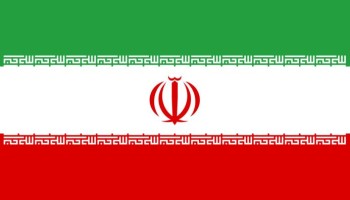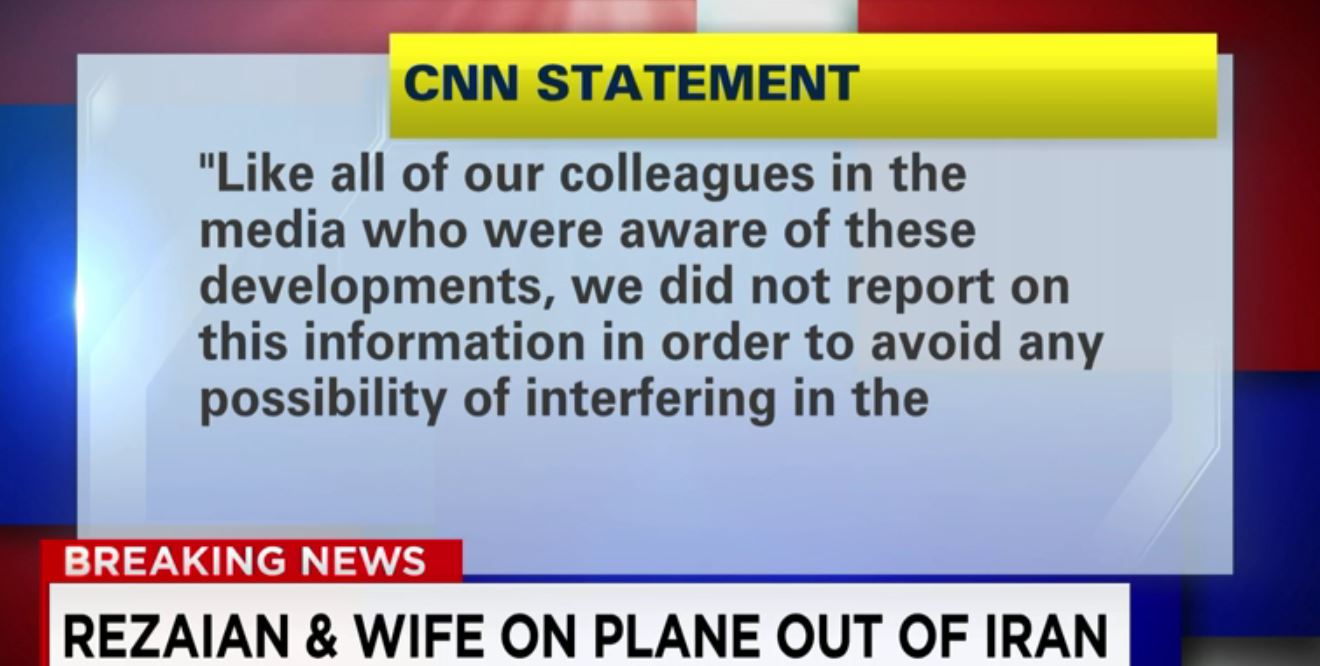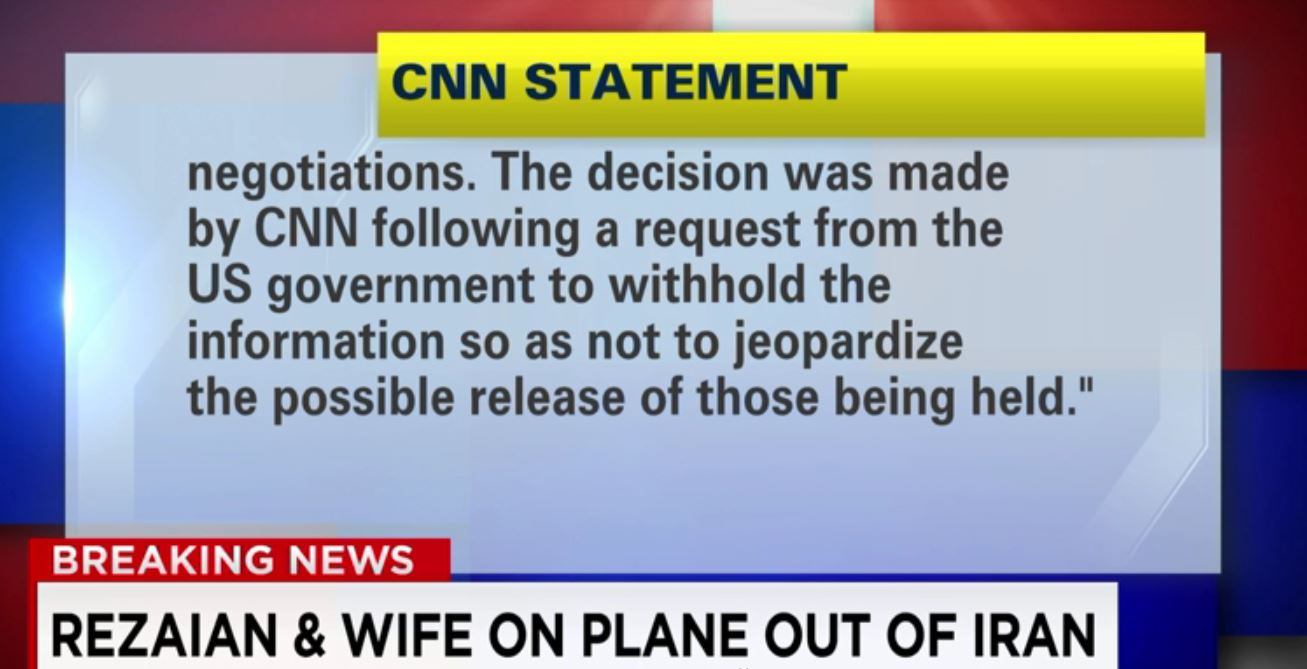
The Iranian flag (Credit: Wikipedia)
The Huffington Post knew that Iran and the United States were negotiating the release of prisoners, including The Washington Post‘s Iran correspondent Jason Rezaian, but decided against reporting in case it would harm the negotiations, The Huffington Post revealed this weekend.
The Huffington Post, CNN, Wall Street Journal and Washington Post “were all aware of these negotiations several months ago,” CNN’s Brian Stelter reported on Reliable Sources.
CNN issued a statement about its decision. “Like all of our colleagues in the media who were aware of these developments, we did not report on this information in order to avoid any possibility of interfering in the negotiations. The decision was made by CNN following a request from the US government to withhold the information so as not to jeopardize the possible release of those being held,” CNN announced on air.
Rezaian is one of four prisoners Iran released in exchange for the U.S. releasing seven Iranians “indicted or imprisoned in the United States for sanctions violations.” He has been held in an Iranian prison since mid-2014. Rezaian was charged in Dec. 2014 and convicted by Iran of espionage. See the Washington Post‘s “The ordeal of Post reporter Jason Rezaian” for more information.
“For years, a journalistic convention has held, more or less, that hostage and prisoner swap talks ought not to be reported on if doing so risks upending the negotiations,” the Huffington Post explained. “When a member of the media is involved, especially a well-respected one like Rezaian, the pressure to stay quiet becomes much greater.”
“We, too, would decline to publish a story that would cause serious harm to specific individuals unjustly held in Iran,” the Huffington Post added.
The Huffington Post noted there were several unusual aspects to the story and its decision-making process. These included the Huffington Post having an on-the-record State Department source in Chase Foster, who believed that the negotiations were completed (Foster has since left the State Department), and the fact that the Iranians were “dropping hints” in public.
As for the Obama administration, the Huffington Post said it didn’t receive any “hard pressure” against publishing, and instead the administration “offered confidence that the talks were moving forward and headed toward a resolution.”
See the Huffington Post’s eventual story on the trade. iMediaEthics has written to the Huffington Post to ask what response it has received to its decision.
Michael Oreskes, NPR’s head of news, said on the program that “I wouldn’t second guess this one…the fundamental test which is if you’re going to put lives in danger by what you publish you really need to be extremely careful and I think that was the test applied here.”
Oreskes brought up the case of Robert Levinson and the Associated Press’s decision to hold publication despite the public interest in the story. The AP reported in December 2013 that Levinson, an American man who went missing in Iran in March 2007, was actually there working for the Central Intelligence Agency. As iMediaEthics wrote at the time, the New York Times learned about Levinson’s CIA link shortly after his disappearance. Both the AP and the New York Times held back reporting for years out of concern for Levinson’s safety.
In the Levinson case, Oreskes told CNN yesterday that “We ultimately decided, and I think we made the right call, that the public interest in knowing how badly the CIA had mishandled that situation outweighed even the possibility of a risk to Levinson, which at that point we judged to be considerably reduced. These are very very difficult situations.” Levinson is still missing.
Earlier in January, more than two dozen news outlets signed a letter to U.S. Secretary of State John Kerry calling for Rezaian’s release. The letter is here.








